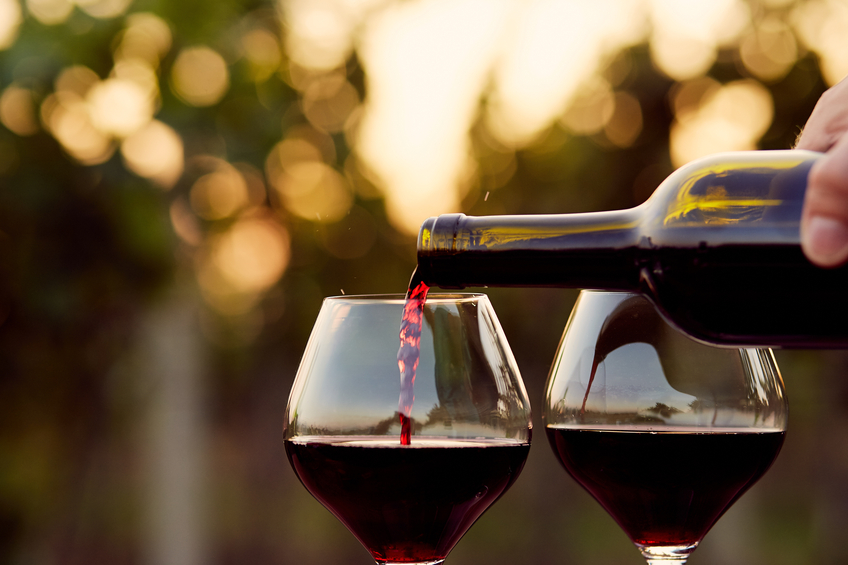A new University of Cambridge study has revealed a fascinating method to control how much alcohol you drink—without you even noticing.
Research shows that drinking wine—particularly red wine—is healthy in moderation. It is linked to lower risk of heart disease, stroke, diabetes, and dementia.1,2
“Moderation” is usually defined as one 5-ounce glass of wine a day for women and two for men. The problem is, there is a fine line between moderate and excessive drinking. It is very easy to slip from “just enough” to “too much.”
British researchers may have found a solution. They provided bar customers with three different size wine glasses: 8.4 ounces, standard 10.1-ounce glasses, and larger 12.5-ounce stemware.
All three glasses were filled with the same amount of wine, 5.9 ounces.3
Scientists discovered that people using the larger wine glasses requested more refills and ended up drinking more. There was a 9.4% increase in wine consumption when patrons used the large wine glasses.4
The lead author of the study was Rachel Pechey. She’s a public health research associate at the University of Cambridge. The study didn’t answer the question of why people drink more wine when they use larger glasses. But she theorizes that perception is responsible. In a larger glass, portions look smaller “leading us to drink faster and order more,” Pechey said.
The Bigger the Glass, the More You Drink
So to drink less, simply use a smaller glass.
A 9.4% increase may not seem like much. But the health effects add up over time.
For example, a man who has two glasses of wine a night out of a smaller glass would end up with 9,717 fewer calories a year. Over five years, this would make him about 15 pounds lighter.
Besides weight, too much wine—or alcohol of any kind—is linked to a host of ills, including cancer, high blood pressure, liver disease, and pancreatitis.5,6 And no, “moderation” does not mean you can have seven drinks in one day and then take the rest of the week off.7
Many people enjoy a glass or two of red wine each night because of its anti-aging and heart benefits. It contains an antioxidant compound called resveratrol that has been shown to increase lifespan in mice.8 A University of London study found that procyanidins in red wine keep blood vessels healthy.9
To maximize your resveratrol intake, choose pinot noir. It is the grape variety with the highest concentration of the antioxidant. Wines with the most procyanidins come from an obscure appellation called Madiran. It is made from the tannat grape in the southwest region of France. But cabernet sauvignon, which is widely available, is also high in healthy procyadidins.
So drink up! (From a small glass.)
In Good Health,

Angela Salerno
Executive Director, INH Health Watch
Like this Article? Forward this article here or Share on Facebook.
References:
1https://www.hsph.harvard.edu/nutritionsource/alcohol-full-story/
2http://www.medicalnewstoday.com/articles/265635.php
3http://www.livescience.com/55006-wine-glass-size-affects-amount-drink.html
4http://bmcpublichealth.biomedcentral.com/articles/10.1186/s12889-016-3068-z
5http://www.livescience.com/36612-7-ways-alcohol-affects-your-health.html
6https://www.niaaa.nih.gov/alcohol-health/alcohols-effects-body
7http://www.livescience.com/36612-7-ways-alcohol-affects-your-health.html
8http://www.medicalnewstoday.com/articles/244905.php
9http://www.medicalnewstoday.com/articles/57852.php

